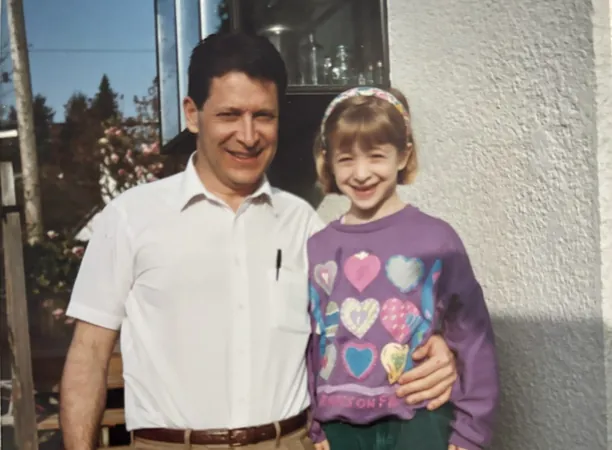
Transforming Trauma into Triumph: UBC Researcher Empowers Youth Affected by Violence
2025-03-31
Author: Emily
The Life-Changing Impact of Violence
In a heartbreaking turn of events that forever altered the course of her life, Jacquelyn Cragg lost her father to a tragic act of violence—a fatal stabbing during a robbery at their Alberta home when she was just eight years old. That fateful night marked the end of her childhood innocence, yet it also set her on a path that would transform her pain into purpose.
Finding Solace in Numbers
In the years following this devastating loss, Jacquelyn turned to math as her sanctuary. “Numbers give me resilience and fill my heart,” she expressed in a revealing article for the Canadian Medical Association Journal. Her high school calculus teacher provided her with the mathematical tools to regain a sense of control—integrals, trigonometry, and derivatives became her keys to unlocking a feeling of safety that her childhood trauma had stripped away. This passion led her to earn a degree in statistics and biology, ultimately leading to her current position as a professor specializing in health outcomes at the University of British Columbia (UBC). Here, she focuses on critical neurological diseases, including amyotrophic lateral sclerosis (ALS).
A Mission to Heal
Now, Dr. Cragg is committing herself to a new mission: healing the wounds of youth affected by violent crime through the power of mentorship and science. This fall, she is launching an innovative mentorship program that aims to connect up to 30 young individuals with 30 graduate student mentors from UBC. These mentors will guide the youth in creating science fair projects, providing not just academic support but also emotional guidance backed by trauma-informed training.
Support and Goals of the Program
With the generous support of a $150,000 PromoScience grant from the Natural Sciences and Engineering Research Council of Canada (NSERC), the mentorship program is designed to run over three impactful years, engaging 90 young participants alongside 90 committed mentors.
Transforming Trauma Through Scientific Inquiry
Dr. Cragg believes in the transformative power of harnessing emotions arising from trauma. She stated, “My hope is that the anger, grief, and sadness that follow violence can be used as fuel to develop a passion for scientific inquiry. Rather than letting grief consume us, it can give us a focus and propel us toward a deeper understanding of a subject.”
The Importance of Mentorship
Numerous studies underscore the effectiveness of mentorship in educational settings, pointing to enhancements in academic performance and increased self-confidence, along with reduced post-traumatic stress symptoms among at-risk youth.
Redefining Science
Dr. Cragg emphasized that science is not merely beakers and test tubes; it’s about understanding and connecting with the world around us. The very word 'science' comes from the Latin “scire,” meaning “to know.” She asserts that lived experiences—particularly those of trauma—enrich all facets of scientific exploration. “Science thrives on diversity,” Dr. Cragg reiterated, driving home the importance of varied backgrounds in the scientific process.
A Vision for a Brighter Future
Her vision for the PromoScience program extends beyond academic achievement; she aims to endow these young people with a sense of unlimited possibilities, mirroring the healing journey she undertook through science.
Get Involved
For further details regarding the initiative, community partners, and interested youth are encouraged to reach out to Dr. Cragg directly at jacquelyn.cragg@icord.org.
Conclusion
Don't miss this chance to witness how one woman's journey from tragedy can inspire a new generation of thinkers and innovators!









 Brasil (PT)
Brasil (PT)
 Canada (EN)
Canada (EN)
 Chile (ES)
Chile (ES)
 Česko (CS)
Česko (CS)
 대한민국 (KO)
대한민국 (KO)
 España (ES)
España (ES)
 France (FR)
France (FR)
 Hong Kong (EN)
Hong Kong (EN)
 Italia (IT)
Italia (IT)
 日本 (JA)
日本 (JA)
 Magyarország (HU)
Magyarország (HU)
 Norge (NO)
Norge (NO)
 Polska (PL)
Polska (PL)
 Schweiz (DE)
Schweiz (DE)
 Singapore (EN)
Singapore (EN)
 Sverige (SV)
Sverige (SV)
 Suomi (FI)
Suomi (FI)
 Türkiye (TR)
Türkiye (TR)
 الإمارات العربية المتحدة (AR)
الإمارات العربية المتحدة (AR)